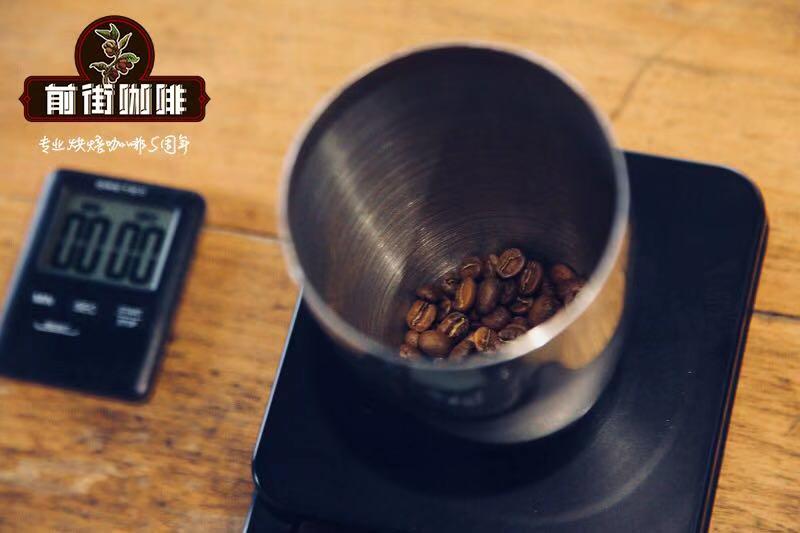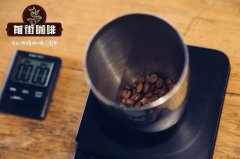Taste characteristics of Salvadoran coffee varieties

Professional coffee knowledge exchange more coffee bean information please follow the coffee workshop (Wechat official account cafe_style)
Introduction of Qianjie-Salvadoran Coffee varieties
It was first cultivated by researchers in El Salvador in 1958. Pacamara is an excellent variety under rare artificial breeding, which is better than blue, and perfectly inherits the advantages of the mother plant. Both the excellent taste of Pacas and the large size of Maragogipe are inherited by raw bean granules. The bean body is at least 70% and 80% of that of elephant beans, with more than 17 orders and more than 100% and more than 18 eyes. Average bean length 1.03 cm (general bean about 0.8-0.85 cm) average bean width 0.71 cm (general bean about 0.6-0.65), thickness 0.37 cm, bean shape plump and round. The biggest feature of this variety is that it is sour, lively and tricky, sometimes biscuit, sometimes fruity, thick and greasy. The quality is the best from El Salvador and Guatemala.
Pacamara beans are long, plump and round in shape, with an average of 1.03cm. Although they are smaller than elephant beans, they are larger than ordinary coffee beans. Usually, Pakamara chooses coffee beans with more than 18 mesh. Pakamara is a rare excellent variety artificially bred. The yield is 3.225 million bags (60 kg each), but at present the output has dropped sharply.
Kenya SL-28 is the two most popular varieties produced by the Scott laboratory in Kenya in the 1930s. The Scott Laboratory no longer exists, but it is now the National Agricultural Laboratory and part of the Kenyan Agricultural and Animal Husbandry Research Organization. Both varieties are bourbon-derived varieties, although from different pedigrees: SL-28 was developed from a drought-resistant variety originally planted in Tanganyika, which is part of modern Tanzania; it is generally considered to be of the highest quality but less productive than other commercial Arabica varieties.
The SL variants all showed bronze tender leaves and the yield from SL28 was not as large as expected. But the copper leaf color and broad bean-shaped beans had great sweetness balance and complex flavor as well as significant citrus and black plum characteristics. The coffee flavor was strongly sour full-bodied and beautiful balanced.
Flavor: it smells of berries, with citrus, berries, lemons and a hint of vegetation at the end, and a nutty finish. The overall taste is clean and bright.
In short: Qianjie is a coffee research hall, happy to share the knowledge about coffee with you, we share unreservedly just to make more friends fall in love with coffee, and there will be three low-discount coffee activities every month. The reason is that Qianjie wants to make more friends drink the best coffee at the lowest price, which has been Qianjie's tenet for 6 years!
END
Important Notice :
前街咖啡 FrontStreet Coffee has moved to new addredd:
FrontStreet Coffee Address: 315,Donghua East Road,GuangZhou
Tel:020 38364473
- Prev

Brief introduction of Yunnan small Grain Coffee varieties characteristics of Coffee planting area in Yunnan
Professional Coffee knowledge Exchange more coffee bean information Please follow the coffee workshop (Wechat official account cafe_style) Qianjie-Yunnan Coffee Variety introduction small seed also known as Arabian seed, medium seed also known as Gaffra seed, large seed also known as Liberian species there are two main kinds: Arabica and Robusta. Coffee is rich in protein, fat, sucrose, starch and coffee.
- Next

Does Kaddura belong to Arabica? what are the characteristics of Kaddura coffee?
Professional coffee knowledge exchange more coffee bean information please follow the coffee workshop (Wechat official account cafe_style) Front Street-Kaddura Coffee Variety introduction Kaddura is a natural variety of Arabica variety bourbon, was found in Brazil in 1937, its tree is not as tall as bourbon, shorter
Related
- Beginners will see the "Coffee pull flower" guide!
- What is the difference between ice blog purified milk and ordinary milk coffee?
- Why is the Philippines the largest producer of crops in Liberia?
- For coffee extraction, should the fine powder be retained?
- How does extracted espresso fill pressed powder? How much strength does it take to press the powder?
- How to make jasmine cold extract coffee? Is the jasmine + latte good?
- Will this little toy really make the coffee taste better? How does Lily Drip affect coffee extraction?
- Will the action of slapping the filter cup also affect coffee extraction?
- What's the difference between powder-to-water ratio and powder-to-liquid ratio?
- What is the Ethiopian local species? What does it have to do with Heirloom native species?

